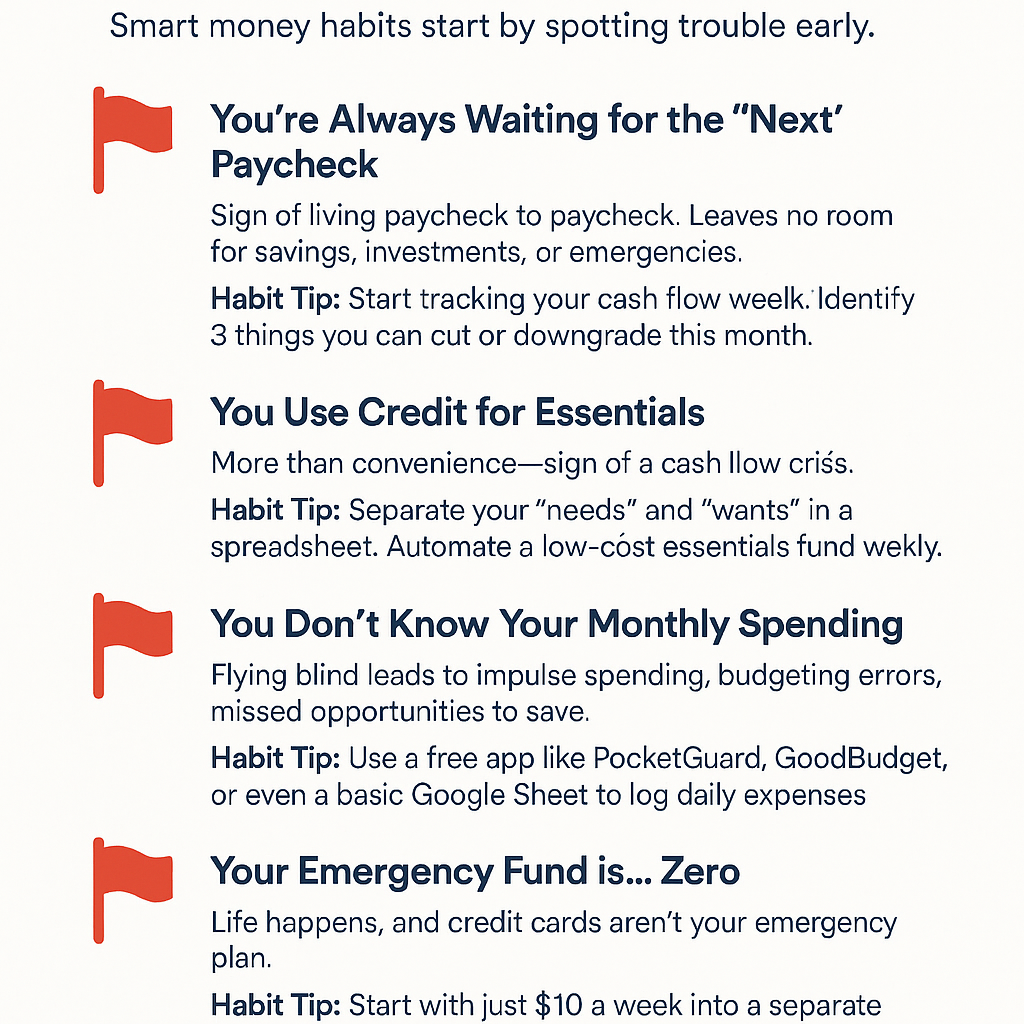5 Financial Red Flags You Should Never Ignore
SMART MONEY HABITS


🚩 5 Financial Red Flags You Should Never Ignore
Smart money habits start by spotting trouble early. Many people think managing money is just about earning more or spending less. But real financial wisdom comes from identifying warning signs before they spiral into bigger issues. Here are five red flags to watch out for:
1️⃣ You’re Always Waiting for the “Next” Paycheck
If you find yourself counting down the days to payday every single month, it’s a sign of living paycheck to paycheck. This cycle leaves no room for savings, investments, or emergencies—a key signal your income-to-expense ratio needs attention.
👉 Habit Tip: Start tracking your cash flow weekly. Identify 3 things you can cut or downgrade this month.
2️⃣ You Use Credit for Essentials
Groceries, fuel, or utility bills going on a credit card regularly? That’s not just convenience—it’s a cash flow crisis. Using credit for survival means you’re borrowing from your future to pay for today.
👉 Habit Tip: Separate your “needs” and “wants” in a spreadsheet. Automate a low-cost essentials fund weekly.
3️⃣ You Don’t Know Your Monthly Spending
If you can’t name your average monthly expenses, you’re flying blind. This disconnect leads to impulse spending, budgeting errors, and missed opportunities to save.
👉 Habit Tip: Use a free app like PocketGuard, GoodBudget, or even a basic Google Sheet to log daily expenses.
4️⃣ Your Emergency Fund is… Zero
Life happens. And when it does, credit cards aren’t your emergency plan. Having zero financial cushion is like driving without a seatbelt.
👉 Habit Tip: Start with just $10 a week into a separate savings account labeled “Do Not Touch.”
5️⃣ You’re Only Saving What's Left (If Any)
If savings come last, they rarely come at all. Financially savvy people treat savings like a fixed bill—non-negotiable and consistent.
👉 Habit Tip: Automate your savings every payday. Even 5–10% can compound into meaningful progress.
💡 Final Thought:
Smart money habits aren’t built in a day. But spotting red flags today can save you years of stress tomorrow. Awareness is step one. Consistency is step two. Master both—and your money will finally start working for you, not against you.
